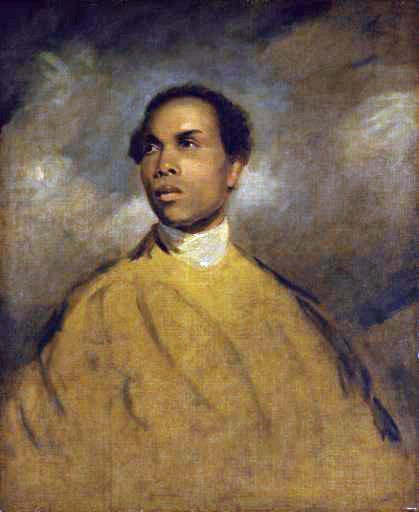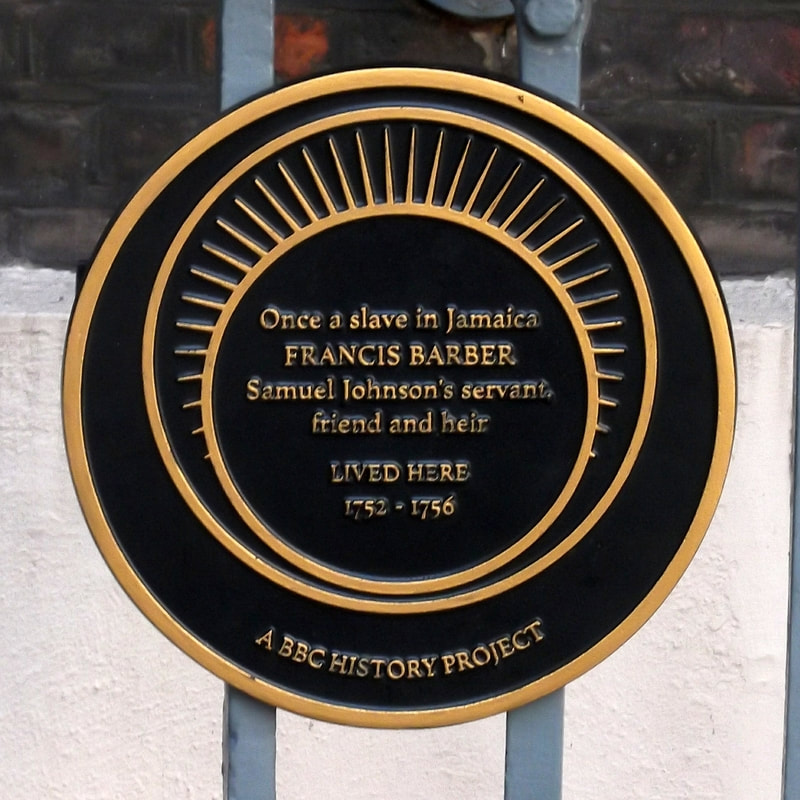He was born a slave in Jamaica; his birth name and family are unknown. He was brought to England by Richard Bathurst, father to Johnson's friend of that name, who had him baptized and named Francis Barber, and sent him to a school in Barton in Teesdale, North Riding of Yorkshire. Freed by the terms of Bathurst's will, the boy was placed in Samuel Johnson's service upon the death of his wife in 1752, and remained with him until Johnson's death.
Barber performed his domestic duties diligently, though friends doubted Johnson's need for his service.
Barber proved an attractive young man: 'Frank has carried the empire of Cupid farther than most men' said Johnson after returning from Lincolnshire in 1764, where the lad had so impressed the local girls that Mrs Piozzi asserted that one followed him back to London (Hill, 1.290–91).
On 28 January 1773 he married Elizabeth Ball (c.1755–1816). They had five children. In 1783 the whole family came to live with Johnson at his house in Bolt Court, London.
Barber was a continuous presence in Johnson's life, accompanying him on many of his travels. On Johnson's death in 1784 he was the principal legatee, receiving an annuity of £70. The Barbers moved to Lichfield following their benefactor's advice that Francis remove himself from the temptations of London, but through extravagance they soon sank into poverty, and were reduced to selling gifts from Johnson to greedy collectors. For the last years of his life Barber kept a small village school in the nearby village of Burntwood. He died in Stafford Infirmary on 13 January 1801, and was buried on 28 January at St Mary's, Stafford
(Source William R. Jones)
Portrait possibly of Francis Barber, attributed either to James Northcote or Sir Joshua Reynolds 1770
https://www.londonremembers.com/memorials/francis-barber- information on plaque


